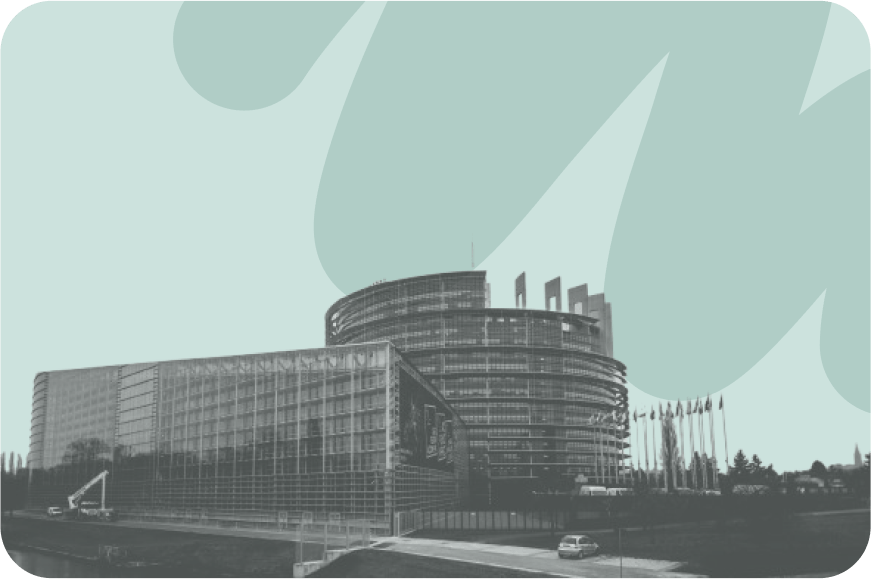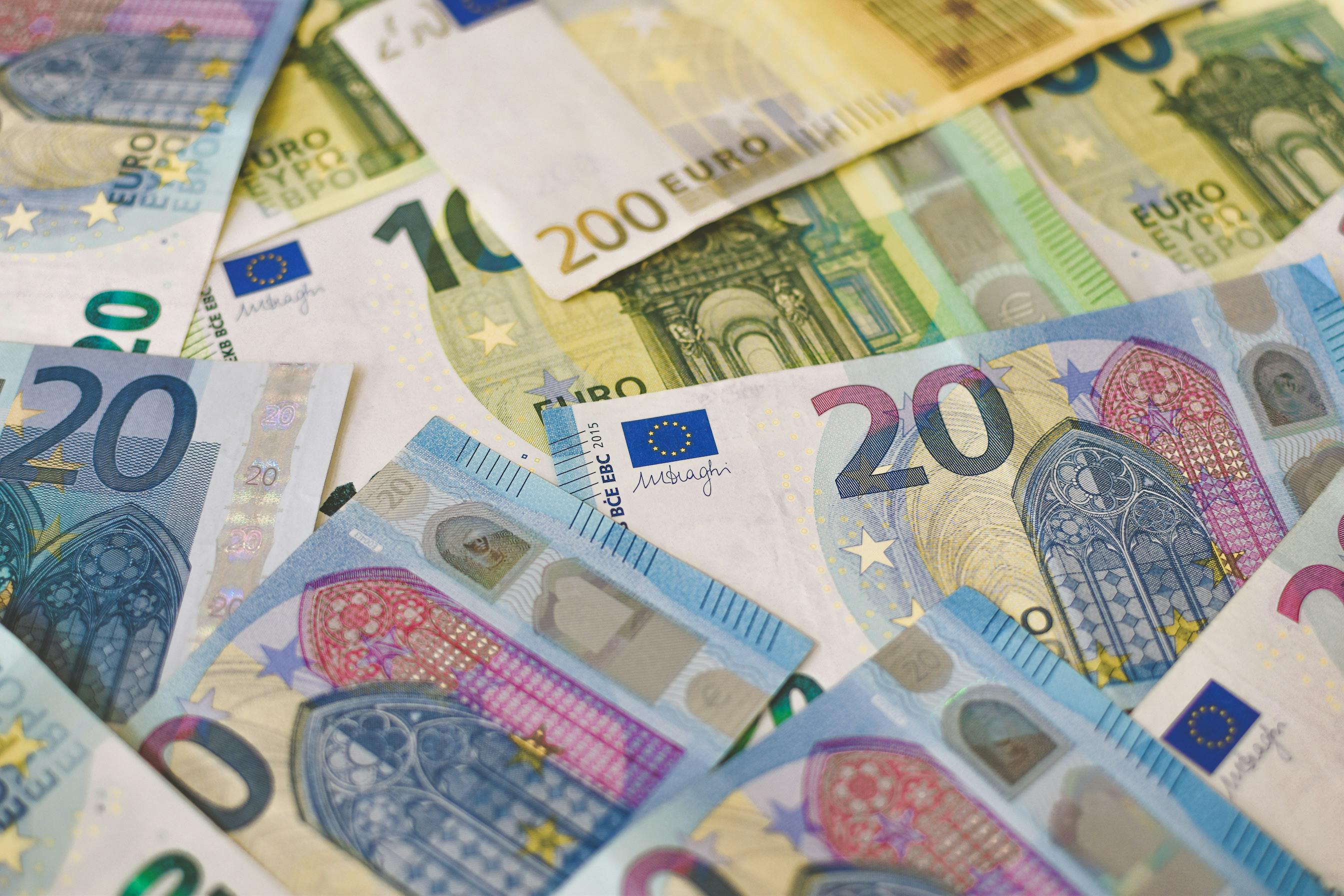
What are the 3 Pillars of Corporate Sustainability?
In this article, we'll explore what the 3 pillars of corporate responsibility are, why they're important, and how businesses can turn them into practical action.
ESG / CSR
Industries



The European Financial Reporting Advisory Group (EFRAG) is a cornerstone of financial reporting in Europe, playing a crucial role in ensuring that financial standards meet the needs of European businesses. Established in 2001 with the encouragement of the European Commission, EFRAG was created to represent European interests in the development and implementation of International Financial Reporting Standards (IFRS). These standards are vital for maintaining transparency, comparability, and efficiency in European markets.
👉 In this article, we’ll delve into what EFRAG is, explore its core activities, and discuss why it’s relevant to companies operating within Europe’s economic landscape.
The European Financial Reporting Advisory Group (EFRAG) was established in 2001 to provide a unified European voice in the global arena of financial reporting. EFRAG is a private association driven by the public interest, formed with strong backing from the European Commission. Its primary mission is to ensure that the development of International Financial Reporting Standards (IFRS) aligns with the specific needs and concerns of European businesses and markets.
EFRAG operates as a key intermediary between European stakeholders and the International Accounting Standards Board (IASB), which is responsible for setting global accounting standards. By gathering input from a wide range of European stakeholders (including businesses, auditors, regulators, and academics) EFRAG formulates and promotes European perspectives on financial reporting. This helps ensure that the standards set by the IASB consider Europe's unique economic and regulatory landscape. Additionally, EFRAG provides crucial advice to the European Commission on whether newly issued or revised IFRS should be endorsed for use within the EU.
One of EFRAG’s most significant roles is its proactive involvement in the development of International Financial Reporting Standards (IFRS) from their earliest stages. EFRAG works closely with the International Accounting Standards Board (IASB) to ensure that European views are considered right from the inception of new standards or amendments to existing ones. This influence is important because it allows EFRAG to shape the direction of standard-setting in a way that aligns with European economic realities and regulatory environments.
EFRAG’s influence is not limited to the drafting phase, it also extends to the post-implementation reviews of existing standards. These reviews are essential for assessing whether the standards continue to meet the needs of European stakeholders and identifying areas where improvements or clarifications may be necessary. Through public consultations and collaboration with various stakeholders, EFRAG ensures that the voices of European businesses, investors, auditors, and regulators are heard and integrated into the global standard-setting process.
Another key activity of EFRAG is providing endorsement advice to the European Commission. When the IASB issues new or revised IFRS, it is EFRAG’s responsibility to evaluate whether these standards meet the necessary criteria for endorsement within the European Union. This process involves a thorough technical assessment of the standard’s relevance, reliability, comparability, and understandability. EFRAG also considers whether the application of the standard would be conducive to the European “public good”, which includes evaluating its potential impact on financial stability, economic growth, and the competitiveness of European companies.
EFRAG’s endorsement advice is critical because it directly influences whether a new IFRS will be adopted for use by companies within the EU. The endorsement process ensures that any new standards not only meet high technical standards but also align with the broader economic and public interest goals of the European Union.
Beyond its advisory and consultative roles, EFRAG is recognized for its thought leadership in the field of financial reporting. The organization conducts proactive research that explores emerging issues and trends in financial reporting, often anticipating future needs and challenges. This means that EFRAG helps shape the future landscape of financial reporting, not just within Europe but on a global scale.
The adoption of International Financial Reporting Standards (IFRS) in Europe was a crucial step towards achieving a unified and transparent financial reporting framework across the continent. Since 2005, all publicly listed companies in the European Union have been required to prepare their consolidated financial statements in accordance with IFRS. This requirement has significantly enhanced the comparability and consistency of financial information across European markets, fostering greater integration and efficiency in the region's capital markets.
EFRAG lies at the heart of IFRS implementation in Europe. The organization plays a crucial role in ensuring that IFRS are not only technically sound but also aligned with the specific needs and concerns of European stakeholders. EFRAG’s endorsement advice to the European Commission is a key part of the process that determines whether new or revised IFRS should be adopted within the EU.
Through its rigorous evaluation process, EFRAG assesses each IFRS for its relevance, reliability, and potential impact on the European economy. This ensures that the standards endorsed for use in Europe contribute positively to the transparency, comparability, and efficiency of financial reporting. By linking the global standards set by the IASB with the specific requirements of the European market, EFRAG acts as a critical bridge that adapts and refines IFRS to better suit the European context.
The implementation of IFRS across Europe, guided by EFRAG's assessments, has brought about several significant benefits:
The global adoption of IFRS, which EFRAG has been instrumental in promoting within Europe, further highlights the significance of these standards. Over 168 countries worldwide now use IFRS, positioning Europe as a leader in global financial reporting. EFRAG’s role in adapting and endorsing IFRS for the European context has ensured that European companies can operate seamlessly in international markets, using financial statements that are consistent with global practices.

One of EFRAG’s most vital contributions to the financial reporting landscape in Europe is its commitment to serving the European “public good”. When advising the European Commission on whether to endorse new or revised IFRS, EFRAG goes beyond technical assessments. It conducts a comprehensive analysis to determine whether the adoption of a standard would be beneficial for the European public at large. This includes evaluating the potential impact of IFRS on various aspects of the European economy, such as financial stability, economic growth, and the competitiveness of European businesses.
EFRAG’s public good analysis often begins with an in-depth economic impact assessment. This involves examining how the implementation of a particular IFRS might influence financial stability across the EU. For example, a standard that introduces significant changes in the way companies recognize revenue or report on liabilities could have widespread implications for how businesses are perceived by investors and how they access capital. EFRAG carefully considers these potential impacts to ensure that any new standards contribute positively to the economic health of the region.
Furthermore, EFRAG assesses how these standards might affect the growth and competitiveness of European companies, both within the EU and in the global market. By ensuring that IFRS are conducive to economic growth, EFRAG helps to create a financial reporting environment that supports innovation, investment, and long-term prosperity across Europe.
In addition to evaluating the broader economic implications, EFRAG also focuses on the potential impact of IFRS on various stakeholders, including small and medium-sized enterprises (SMEs). SMEs are the backbone of the European economy, and changes in financial reporting standards can have significant effects on their operations. EFRAG’s analysis takes into account the unique challenges faced by SMEs, ensuring that new IFRS do not impose undue burdens on these businesses.
Moreover, EFRAG considers the interests of other stakeholders, such as investors, regulators, and the broader public. This holistic approach ensures that the adoption of IFRS contributes to a fair and transparent financial reporting system that benefits all parties involved.
A crucial part of EFRAG’s endorsement process is the cost-benefit analysis, which weighs the potential costs of implementing a new IFRS against the expected benefits. This analysis is essential for ensuring that the adoption of new standards does not create disproportionate burdens on companies, particularly in terms of compliance costs and administrative complexity.
EFRAG carefully examines whether the expected benefits - such as improved transparency, better comparability of financial statements, and enhanced investor confidence - justify the costs associated with the standard. This approach helps to ensure that the financial reporting standards adopted in Europe are not only effective but also practical and efficient for businesses to implement.

EFRAG’s strength lies in its extensive engagement with a diverse range of stakeholders, including businesses, investors, auditors, regulators, and academics. By conducting public consultations, outreach events, and field tests, EFRAG ensures that the financial reporting standards it endorses reflect the needs and concerns of the European financial ecosystem. This inclusive approach helps create standards that are both practical and beneficial for the European economy.
Transparency is a cornerstone of EFRAG’s operations. EFRAG conducts its work openly, encouraging active stakeholder participation in its consultation processes. This commitment to transparency builds trust and ensures that EFRAG’s decision-making process is clear and understandable. By conducting impact analyses and publicizing findings, EFRAG maintains accountability and enhances the credibility of its recommendations.
EFRAG’s governance structure is designed to ensure independence and effectiveness. The organization is guided by its member organizations, including national standard setters and European stakeholder groups. The EFRAG Board, composed of representatives from these members, oversees the strategic direction and finalizes EFRAG’s positions on IFRS. Supporting the Board is the EFRAG Technical Expert Group (TEG), which provides technical expertise to ensure that recommendations are well-grounded in financial reporting principles.
EFRAG also collaborates closely with key European institutions like the European Commission, the European Central Bank (ECB), and European Supervisory Authorities (EBA, EIOPA, and ESMA). These institutions serve as observers in EFRAG’s governance, ensuring that its work aligns with broader European policy objectives and regulatory priorities.
EFRAG is funded by its member organizations and the European Union, ensuring that it has the resources needed to fulfill its mission while maintaining financial independence. This independence is important for the integrity of its endorsement process, ensuring that recommendations remain unbiased and focused on the public good.
EFRAG plays a significant role in shaping the financial reporting landscape for companies operating in Europe. By ensuring that International Financial Reporting Standards (IFRS) are tailored to European needs, EFRAG directly influences how companies prepare and present their financial statements. This impact is particularly relevant for publicly listed companies, which must adhere to IFRS in their consolidated accounts.
While IFRS is mandatory for listed companies, EFRAG’s work also has implications for small and medium-sized enterprises (SMEs), especially in Member States where IFRS is used by non-listed entities. EFRAG takes into account the unique challenges faced by SMEs, ensuring that the adoption of new standards does not place undue burdens on these businesses. By considering the specific needs of SMEs in its assessments, EFRAG helps to create a financial reporting environment that is accessible and equitable for businesses of all sizes.
EFRAG’s work ensures that the financial reporting standards applied in Europe are aligned with both global best practices and European-specific requirements. This alignment helps companies maintain compliance with regulations while also enhancing their competitiveness in the global market. By providing a consistent and reliable framework for financial reporting, EFRAG supports companies in building investor confidence and accessing capital more effectively.
As the financial landscape evolves, EFRAG’s influence extends to new areas of reporting, such as sustainability and environmental, social, and governance (ESG) metrics. With a growing demand for transparency in these areas, EFRAG is increasingly involved in shaping standards that address non-financial reporting. This involvement is crucial for companies as they navigate the complexities of reporting on sustainability and other non-financial metrics, which are becoming more important to investors and regulators alike.

Sustainability reporting has become an essential aspect of corporate transparency and accountability, reflecting the growing importance of ESG issues in business operations. As stakeholders increasingly demand insights into how companies manage their impact on the environment and society, sustainability reporting provides a structured way for businesses to disclose their ESG performance. The European Union has been at the forefront of these efforts, particularly with the introduction of the Corporate Sustainability Reporting Directive (CSRD), which aims to standardize sustainability reporting across Europe.
EFRAG’s role in sustainability reporting has expanded significantly with the advent of the CSRD. Under this directive, EFRAG was appointed as the technical adviser to the European Commission, tasked with developing the European Sustainability Reporting Standards (ESRS). These standards are designed to ensure that companies report on sustainability using a double materiality perspective - addressing both the financial impact of sustainability issues on the company and the company’s impact on society and the environment.
In response to this mandate, EFRAG established the EFRAG Sustainability Reporting Board (EFRAG SRB) and the EFRAG Sustainability Reporting Technical Expert Group (EFRAG SR TEG) to guide the development of these standards. On 22 November 2022, the first set of twelve draft ESRS was approved by the EFRAG SRB and submitted to the European Commission. These standards were subsequently adopted by the European Commission as Delegated Acts on 31 July 2023, marking a significant milestone in the EU’s sustainability reporting framework.
The concept of double materiality is central to the CSRD and the ESRS. This approach requires companies to consider not only how sustainability issues affect their financial performance (financial materiality) but also how their activities impact the environment and society (environmental and social materiality). By adopting this comprehensive perspective, EFRAG ensures that sustainability reporting goes beyond traditional financial reporting, providing a more holistic view of a company’s performance and its broader impacts.
EFRAG’s work on sustainability reporting standards does not occur in isolation. Recognizing the global nature of ESG issues, EFRAG collaborates with international sustainability reporting standard setters and initiatives to ensure that the ESRS are not only relevant for Europe but also aligned with global best practices. This cooperation is crucial for creating a consistent and comparable sustainability reporting framework that can be applied across different jurisdictions, facilitating global efforts to address climate change, social inequality, and other pressing sustainability challenges.
The introduction of the ESRS under the CSRD represents a significant shift for companies operating in Europe. These standards require companies to provide detailed disclosures on a wide range of sustainability topics, from greenhouse gas emissions and biodiversity impacts to human rights and social equity. For companies, this means integrating sustainability considerations into their core business strategies and operations, ensuring that they are prepared to meet these new reporting requirements.
EFRAG’s work in developing these standards is critical in helping companies navigate this transition. By providing clear guidelines and robust frameworks for sustainability reporting, EFRAG ensures that companies can effectively communicate their ESG performance to stakeholders, enhance their transparency, and contribute to broader societal goals.
As sustainability continues to rise on the corporate agenda, EFRAG’s role in this domain is likely to grow. The organization will continue to refine and expand the ESRS, addressing emerging issues and incorporating new stakeholder concerns. Moreover, as sustainability reporting becomes more integrated with financial reporting, EFRAG’s expertise will be invaluable in ensuring that companies can deliver comprehensive, accurate, and meaningful disclosures that meet the needs of all stakeholders.
Greenly is pleased to announce its participation in the "Friends of EFRAG" initiative, joining a group of companies committed to advancing sustainability reporting in Europe. By becoming a Friend of EFRAG, Greenly aligns itself with EFRAG’s mission to develop and implement the European Sustainability Reporting Standards (ESRS), which are key to enhancing transparency and accountability in corporate sustainability practices.
As a Friend of EFRAG, Greenly is committed to supporting the development of sustainability reporting standards that are both comprehensive and practical. This role allows us to stay engaged with the evolving landscape of sustainability reporting and contribute to discussions that shape the standards being developed.
The Friends of EFRAG initiative brings together a diverse network of stakeholders, each contributing their perspectives to enhance the effectiveness of sustainability reporting standards. Greenly values the opportunity to be part of this collaborative effort, where we can share insights and feedback to help ensure that the ESRS are both practical and aligned with the needs of businesses across Europe.
As we continue to engage with the Friends of EFRAG, Greenly is excited about the opportunity to contribute to the development of sustainability reporting standards. We look forward to collaborating with other stakeholders in this network, helping to shape standards that will drive meaningful progress in sustainability and corporate responsibility.

As the global shift towards sustainable practices accelerates, businesses of all sizes are recognising the importance of integrating sustainability into their operations. Achieving sustainability goals, whether driven by regulatory mandates or the increasing demand from stakeholders, requires a strategic and comprehensive approach. Greenly is here to support this journey by offering a suite of sustainability solutions designed to simplify and enhance your path toward greater environmental responsibility.
Greenly provides a range of carbon management solutions that empower businesses to measure, manage, and reduce their carbon footprint:
Supply chain emissions, categorized as Scope 3, are often the most challenging to manage but are crucial for achieving comprehensive sustainability goals. Greenly assists you in engaging suppliers, transitioning to low-carbon alternatives, and building more sustainable partnerships. Our support ensures increased transparency and substantial emission reductions across your entire supply chain, helping you meet your net-zero targets.
Greenly’s user-friendly platform streamlines the process of calculating and monitoring your carbon footprint. We offer an intuitive experience that integrates sustainability into every aspect of your operations, allowing you to track progress against your ESG goals and manage your environmental impact with ease.
Greenly offers end-to-end support on your sustainability journey. From precise carbon measurement and strategic action planning to supply chain decarbonization and platform integration, Greenly provides the tools and expertise needed to significantly reduce your environmental impact. Partnering with Greenly positions your business as a leader in sustainability, helping you build a resilient and responsible future.
Start your journey towards sustainability today with Greenly. Together, we can help build a more sustainable future for your business and the planet.